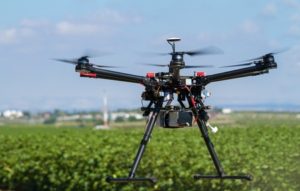Is It Possible Drones Will Play a Role in Process Serving?

There’s no denying it; we are living in an age of unpredictable and awe inspiring technological advancements. From medical miracles to self-driving cars, many of the things being developed today would have been unthinkable even 20 years ago. Now Small Unmanned Aircrafts, informally known as drones, are forcing the the civil process service industry to potentially evolve in very unexpected ways.
Delivery Drones?
There has been talk by different companies of using drones to replace food and package delivery people, and the online shopping giant Amazon already has plans in place to utilize delivery drones. So what does this mean for the delivery of court documents? Theoretically, drones could deliver court documents in the same way that social media and email has been allowed to participate in the process, and this would make drone delivery a legitimate means of service of process.
Amanda Sexton, the Professional Process Servers Association President, explained what she believes to be the role of drones in the future: “E-service has made it clear that technology can have an impact on process service, but in the same way that is only used as an alternative and not initial method of service, drones have the potential to be used as a secondary method when personal service can’t be completed.” She continued to state that until drones can recognize an individual using facial recognition programs, they will not play any major role in process serving.
Surveillance Using Drones
The concept of surveillance using drones has already become controversial, but it is already being utilized by some law enforcement agencies across the country. This means that process servers could potentially use drones to track down evasive recipients, verify skip traced addresses, and monitor recipients who are believed to be dangerous. This could prove a huge step in the right direction to help protect the lives and safety of process servers.
